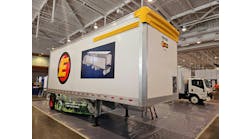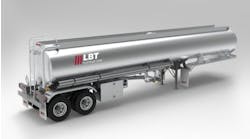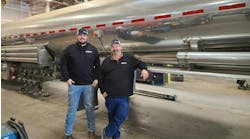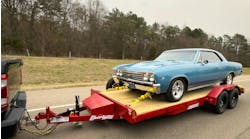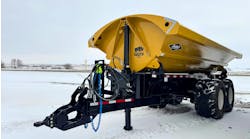I spend quite a bit of time in trailer manufacturing execs’ offices, and their phones ring early and often.
This was certainly the case in a recent visit with Les Eaves, VP of Delta Manufacturing. (See the story on Page 20). His chats with dealers echo conversations I’ve overheard since I started at Trailer/Body BUILDERS two years ago, with common themes of labor shortages and rising materials costs and customer service.
But my interview with Eaves was a little different, because he’s a third-term Arkansas state representative who can and does willingly talk politics; and he shared an insightful take on economic and public policy issues. But let’s set aside the bigger picture topics like picking winners and losers in global trade wars to instead focus on our own communities; specifically, on finding workers.
“Ironically, we brag a lot—especially as an elected official in our state—about unemployment being so low,” Eaves says. “But the effect of that can be that there are no employees to find. Our unemployment rate is very low and, generally, that’s a good thing. But we used to see between six and 10 people a week applying for jobs here. And now we might see one or two.
“We’re shorthanded.”
In search of solutions, Eaves is working with next door neighbor Arkansas State University Newport, which runs a welding program for high school students. The plan is to make the students aware that good jobs are waiting for them.
“I’ve toured it, and it’s an absolutely fantastic welding program,” he says. “They also do CAD training, SolidWorks training. It’s tremendous.”
As it turns out, Eaves is on the right track.
Based on a recent survey by the consulting firm West Monroe Partners on the future of the manufacturing workforce in Minnesota, only 26% ranked it as a top industry to work in. That compared to the 46% who so ranked healthcare and professional services industries.
The study, of people from 18 to 40 years old, shows that there are two main reasons for this:
1. People are unaware of opportunities in manufacturing
a. A majority (65%) of people who learned about job opportunities in manufacturing before they turned 18 said they’d consider pursuing a manufacturing career.
b. For those who hadn’t heard of these opportunities? Most of them (51%) said they would not ever consider a career in manufacturing.
2. They don’t see a future for themselves ... or the industry
The #1 reason chosen by 59% of those with a negative view was, “The industry is not a place I feel I could have a long-term career.”
a. To make it more attractive, 44% said it needed clearly defined career paths for employees.
b. And when asked, a whopping 61% said manufacturing will struggle to attract young, fresh talent within the next 10 years.
“Technology advances and skill requirements for manufacturing jobs are changing, requiring manufacturers to join the fray in recruiting young, tech-savvy talent,” says Sam Dawes of West Monroe. “Manufacturers need to deal with a perception issue that their industry is not the place to start a budding, fast-paced, and cutting-edge career.”
The “good news,” Dawes adds, is companies have “a ton of opportunity” to address the challenge head-on by communicating technology’s tie to long-term careers in the industry.
Spencer McMillan, of Wisconsin-based manufacturer McMillan Electric Co, says the survey results “ring true.”
“Manufacturing is not glamorous, which makes it harder to attract young talent. We are certainly working through the issue of an aging workforce; but because manufacturing wages are so much higher than other industries like retail, I am confident we can attract new and young talent,” McMillan says. “On the other hand, I’m surprised that so many people believe manufacturing jobs will be replaced with automation. We have invested significantly in automation but it has only changed the jobs required, not replaced them.”
Indeed, review the discussion of the employee productivity advantages of adding robotic welding cells to a production line (Page 32) from the recent NATM convention.
“Our theory has been based on implementing technology to keep people happy and productive,” says Mike Mueller, plant manager at Humboldt, Kansas-based B&W Trailer Hitches. “I’ve never stood up in front of the company and said you’re being replaced by a robot. We use robots to make our welders more productive, and for the most part the welders like them.”
Of course, welding isn’t a video game. But modern equipment and techniques are clearly moving in that direction. We just need to make sure young people see the digital future of manufacturing, not the steampunk past.
